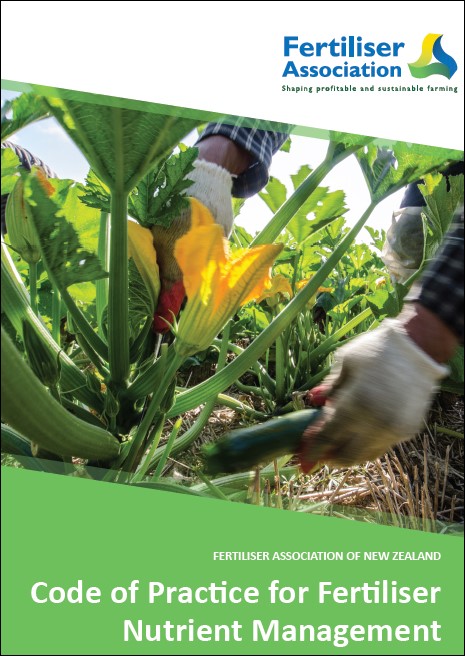Code of practice for fertiliser nutrient management
Author:
Fertiliser Association of New ZealandSource:
Fertiliser Association of New ZealandPublication date:
2023Topics:
EnvironmentExtract
All farm systems are dependent on an adequate supply of essential nutrients, whether it is for cropping and horticulture or pasture for livestock. The role of fertiliser along with other sources of nutrients such as crop residue, nitrogen fixation, soil reserves, compost and effluent is to help ensure adequate levels of essential nutrients are present for plant growth and animal health.
This Code of Practice for fertiliser nutrient management is intended to provide clear principle-based guidance on supplying the nutrients for growing healthy food, while at the same time avoiding or minimising the loss of those nutrients to the environment. The Code is designed to be relevant for the emerging regulatory framework and provide guidance for:
- Farmers, growers and their advisers, when developing nutrient budgets, nutrient management plans, farm plans and freshwater farm plans;
- Freshwater farm plan certifiers and auditors; and
- Regional council planning and technical staff.
Why should I follow this code?
Following this code will help you manage fertiliser better so that:
- Less fertiliser is wasted (saving you or your client money)
- Any potential negative impacts on soil, air and water are avoided or minimised
- You can meet the requirements of customers, regulators, and your community by following well-documented good practice.
The guidance considers both the risks to the environment associated with fertiliser use and options for avoiding, remedying or mitigating impacts. It also provides examples of how farmers and growers can demonstrate their actions. ...
Fertiliser Association of New Zealand, March 2023
